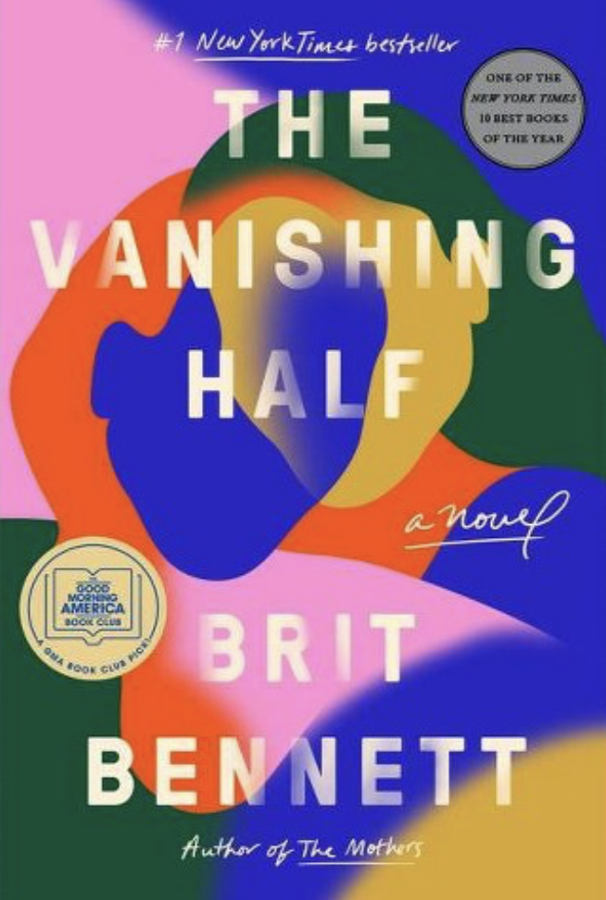The Vanishing Half Book Review
The Vanishing Half by Brit Bennett is a novel that artfully weaves the experiences of four women over two generations to explore the impact of race on human life.
Desiree and Stella are twin sisters who are descendants of their small town’s founder. The founder was a black man who created the town so that every proceeding generation had lighter skin than the last. He wanted to create a town of people with light complexions, where, the lighter you are, the better you are revered by others.
The twins, Desiree and Stella, grow up attached at the hip, and so close that one of them feels like she can hear “[her sister’s] voice in her own head.” However, as separated adults, their lives are drastically dissimilar. Both of the sisters are black, but they are able to pass as white. One of the twins uses this to her advantage; she leaves the town, and goes on to live as a white woman. Both of the twins have daughters who are around the same age, and the novel shows their disparate experiences to further explore race in American society. Despite having mothers that look the same and had the same upbringing, the daughters’ lives, as well as the way the world treats them, could not be more different.
The author emphasizes the theme of conflicting dual identities. The novel explores this through the racial ambiguity of the twin sisters, a transgender character settling into his new identity, and a tempestuous teenager who changes her appearance daily. Bennett uses these characters to explore the impact of decisions on one’s identity when she writes, “that was the thrill of youth, the idea that you could be anyone. Then adulthood came, your choices solidifying, and you realize that everything you are had been set in motion years beforehand.” One’s adult identity is shaped by the array of decisions they have made in their youth, and both of the twins suffer these consequences. Bennett’s writing style is simple, yet it captures the complexities of the ideas that she presents.
The novel is structured to jump between different time periods, exploring each twin’s life separately. Bennett uses topical details to ground each section in its time period, such as references to Martin Luther King Jr’s death to emphasize the 1960s, or the AIDS epidemic to point out the 1980s. As Stella, the twin who passes as white, enters another decade in a life which she feels does not belong to her, her secrets threaten to reveal themselves, and “the careful life she’d built” is at risk of collapsing.
The book explores the influence of whiteness on one’s personality and decisions. In a rare moment of honesty for the twin who chooses to pass as white, she confesses her true identity to another Black woman. She does not have any reservations about this because, if the rumor were to come out, people would believe her because her whiteness arbitrarily gives her credibility. Bennett writes, “and knowing this, for the first time, she felt fully white.” This shows how whiteness is not only just how you look and how you are treated but also how you carry yourself too. The ideas that Brit Bennett presents are bold, yet she develops them convincingly and effectively.
The Vanishing Half demands to be read in one sitting. If the engrossing plot doesn’t attract you, the complex characters and precise writing style will. I highly recommend this book.








Andrea Kelly • Feb 15, 2022 at 4:50 am
Sounds like a great February Break read. Thanks for the recommendation, Serena.